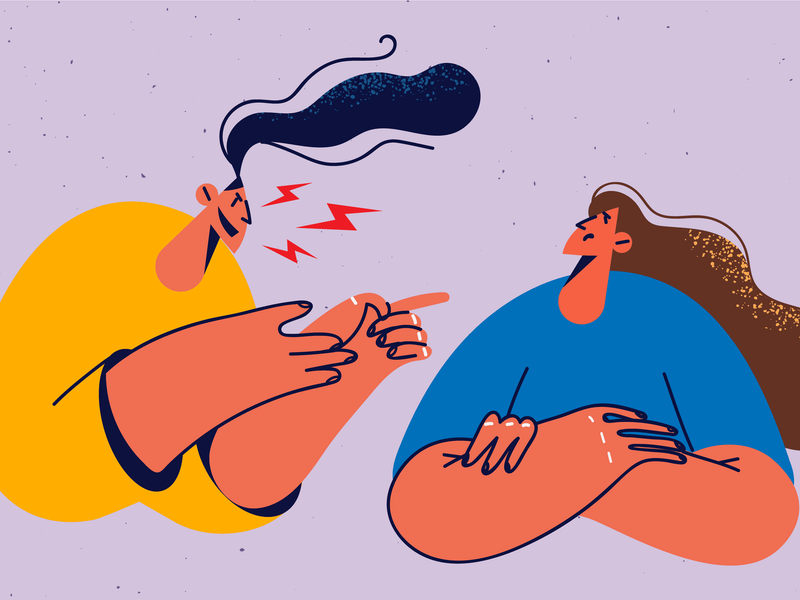15 Ways to Be the Kind of Friend Everyone Wants Around And 3 Habits That Quietly Push People Away
Great friendships aren’t just built on laughs and shared secrets—they thrive on trust, presence, and emotional awareness. Whether you’re naturally the go-to friend or you’re working on being more intentional in your relationships, the way you show up matters.
Some habits draw people in, make them feel safe and seen. Others, often without us realizing it, quietly push people away. You might be surprised by how simple shifts—like listening more than advising or remembering the little things—can completely change the vibe of your friendships.
And on the flip side, even the best intentions can backfire if they come across as self-centered, judgmental, or inconsistent. Ready to be the kind of friend everyone wants around? Here are 15 habits that strengthen bonds—and 3 that just might be eroding them without you noticing.
1. You Actually Listen

Ever notice how rare it feels when someone puts their phone down, looks you in the eye, and truly absorbs what you’re saying? Not the half-distracted “uh-huh” listening while mentally composing their grocery list, but the real deal.
Good listeners don’t just hear words – they catch the emotions hiding between sentences. They notice when your voice gets quiet talking about that thing that still hurts. They remember details because they were actually paying attention the first time.
The magic happens in those moments when you’re talking and suddenly realize: they’re not waiting for their turn to speak. They’re not formulating advice. They’re just… there, fully present with whatever you’re experiencing. No judgment, no rushing you to the point.
This kind of listening is surprisingly rare and incredibly valuable. When someone gives you their full attention, they’re giving you one of their most precious resources: undivided time.
2. You Remember the Little Stuff

Your friend mentioned in passing three weeks ago that they had a big presentation coming up. Today, you send a quick “good luck” text before they walk into the meeting. Their favorite ice cream disappeared from stores, but you spotted it across town and grabbed a pint.
Remembering small details signals something powerful: you were paying attention when they spoke. Their words mattered enough to stick in your brain. That job interview, their coffee order, the name of their childhood pet – these tiny memory fragments build connection.
Anyone can remember birthdays (thanks, Facebook). But people who track the seemingly insignificant details? They’re relationship gold. It’s not about having a supernatural memory – it’s about caring enough to file away the things that matter to someone else.
These small remembrances tell others: “You’re important to me, not just during big moments, but in all the ordinary ones too.”
3. You Cheer Loudly (Even When You’re Quietly Struggling)

Monday morning: your friend got the promotion you’ve been chasing for months. Your heart sinks for a split second, but then you’re genuinely celebrating their win with enthusiastic texts and a congratulatory coffee date. That’s friendship maturity in action.
The ability to separate your own disappointments from someone else’s victories is rare. Many people can only cheer for others when they’re feeling good about their own circumstances. But the friends everyone treasures? They show up with confetti even when they’re privately wrestling with setbacks.
This isn’t about faking happiness. It’s about compartmentalizing your own stuff long enough to fully celebrate theirs. The magic comes from understanding that joy isn’t a limited resource – someone else’s success doesn’t diminish your prospects.
When you can genuinely celebrate others’ wins without making it about you, you become someone people want to share good news with. And that’s a special kind of trust.
4. You Apologize Without Getting Defensive

“I’m sorry I snapped at you earlier. I was stressed about work, but that’s no excuse for taking it out on you.” No qualifiers, no “but you started it,” no redirecting blame. Just ownership and a genuine apology.
We all mess up in friendships. The difference lies in what happens next. Defensiveness is a friendship killer – it signals you care more about protecting your ego than healing the relationship. People who can say “I was wrong” without launching into justifications build extraordinarily strong connections.
This quality isn’t about being a doormat. It’s about emotional intelligence and security. When you know your worth isn’t diminished by admitting mistakes, apologies become opportunities for growth rather than painful admissions of failure.
Friends who apologize cleanly create safety. They signal that the relationship matters more than being right, and that maintaining connection outweighs protecting pride. That kind of emotional maturity is magnetic.
5. You Make Space for the Messy Stuff

Life isn’t an Instagram highlight reel. Behind the filtered photos are breakups, layoffs, family drama, and moments when we’re barely holding it together. Great friends create safe harbors for all of it.
Making space for messy emotions doesn’t mean having all the answers. Sometimes it’s simply saying, “That really sucks and I’m here” instead of rushing to fix or minimize. It’s letting someone cry without trying to cheer them up before they’re ready. It’s normalizing that humans have dark days, anxious thoughts, and irrational fears.
The comfort comes not from solving problems but from removing the pressure to perform happiness. When someone knows they don’t have to pretend with you – that you won’t judge their ugly cry or midnight existential crisis – they can exhale fully in your presence.
This acceptance creates unparalleled intimacy. By allowing others to be authentically imperfect, you become the rare friend people trust with their whole selves, not just their polished versions.
6. You’re Genuinely Happy for Other People

When your friend calls bubbling with excitement about their engagement, new house, or dream job, your first instinct isn’t comparison – it’s celebration. No mental calculations about your own relationship status, housing situation, or career trajectory. Just pure, uncomplicated happiness for them.
This quality is surprisingly rare. Many people perform happiness for others while privately feeling threatened by their success. But those with a genuinely abundant mindset understand that someone else’s good fortune doesn’t diminish their own prospects. They view life as expansive enough for everyone to win.
The ability to feel sincere joy for others requires emotional security. You must be comfortable enough with your own path to not view others’ achievements as commentary on your choices. When you develop this quality, you become a safe person for sharing good news.
People naturally gravitate toward friends who amplify their happiness rather than subtly diminishing it with comparisons, one-upmanship, or backhanded compliments.
7. You’re Dependable — Not Just When It’s Convenient

Saturday night, your friend’s car breaks down in the rain. You’re already in pajamas, halfway through a movie. Without hesitation, you’re grabbing keys and heading out the door. Not because you’re a martyr, but because that’s what friendship means to you.
Reliability isn’t glamorous. It’s not about grand gestures or emotional declarations. It’s the quiet, consistent pattern of showing up – for moving days, airport pickups, and last-minute childcare emergencies. The friends everyone values aren’t necessarily the most fun or exciting; they’re the ones who answer the phone at 2 AM.
This dependability extends beyond crises. It’s remembering to check in after their difficult doctor’s appointment. It’s following through when you say “let’s grab coffee soon.” It’s being where you said you’d be, when you said you’d be there.
In a world of flakiness and last-minute cancellations, people who honor their word become increasingly precious. Your reliability tells others they matter enough for you to rearrange your convenience.
8. You Don’t Keep Score

Last month you drove your friend to the airport, covered lunch twice, and helped them move a couch. They haven’t reciprocated yet, but that ledger only exists if you’re tracking it – and you’re not.
Score-keeping creates transactional relationships where generosity comes with strings attached. Friends who mentally track every favor, text, or invitation waiting for equivalent payback miss the natural rhythm of give and take that happens over time. Some seasons you’ll give more; other times you’ll receive more.
Healthy friendships involve mutual generosity, but not in perfectly balanced exchanges. You might be better at practical help while they excel at emotional support. You might have more resources during certain periods while they have more during others.
The freedom from accounting creates relationships where both people can give authentically rather than strategically. When you support others without calculating your return on investment, you create bonds built on genuine care rather than obligation. That authenticity is what makes your friendship refreshing.
9. You Laugh With, Not At

Humor builds bonds, but there’s a crucial line between playful teasing and comments that leave tiny emotional papercuts. Great friends instinctively know the difference.
Laughing together creates connection, inside jokes, and stress relief. But humor at someone’s expense – especially targeting their insecurities, failures, or sensitive spots – slowly erodes trust. The best friends can be wickedly funny without making others the punchline.
This discernment comes from paying attention. You notice when their laugh seems forced after certain jokes. You see which topics make them uncomfortable. You pick up on the subjects they never joke about themselves.
Your humor builds people up rather than cutting them down. You can be hilarious without targeting someone’s appearance, intelligence, relationship history, or family drama. When you do tease, it’s about things they’re confident about, never their vulnerable spots.
This awareness makes people feel safe around your humor rather than needing to guard against it.
10. You Respect Boundaries

“I need some space this weekend” doesn’t trigger a friendship crisis for you. You respond with “No problem, I’m here when you’re ready” and mean it. No guilt trips, no passive-aggressive comments, no demands for explanations.
Boundary-respecting friends understand that healthy relationships include room for individuality. They don’t take it personally when someone needs alone time, says no to plans, or establishes limits around topics, time, or accessibility. They recognize that good boundaries actually strengthen connections rather than threatening them.
This respect flows from understanding that different people have different needs for space, privacy, and autonomy. You don’t pressure friends to share more than they’re comfortable with or push them into situations they’ve expressed hesitation about.
The safety created when someone knows their boundaries will be honored without drama is incredibly valuable. It allows people to be authentic about their needs rather than reluctantly agreeing to things they don’t want. Friends who respect boundaries earn deeper trust precisely because they don’t demand access to everything.
11. You Speak Kindly Behind Their Back

The conversation shifts to gossip about a mutual friend who isn’t present. Instead of joining in with juicy details, you gently redirect or offer a compassionate perspective. Your loyalty isn’t performative – it exists even when there’s no audience to appreciate it.
Speaking well of friends in their absence is a profound form of respect. It means your friendship isn’t conditional on their presence or approval. You’re not two-faced, saying nice things to someone’s face while undermining them elsewhere.
This integrity creates a reputation for trustworthiness. People notice how you talk about others and correctly assume you’ll extend the same courtesy to them. They know their vulnerabilities, mistakes, and confidences are safe with you.
The protection you offer isn’t about pretending friends are perfect. It’s about choosing appropriate contexts for difficult conversations – directly with them rather than through the grapevine. When you do discuss concerns with others, it comes from a place of genuine care, not entertainment.
12. You Don’t Try to “One-Up” Everything

Your friend is sharing about their exhausting week. Instead of jumping in with “You think that’s bad? Let me tell you about MY week,” you simply listen and validate their experience. No comparison, no competition, no story-stealing.
Conversation one-uppers turn dialogue into a tennis match where they must return with something bigger, better, or worse. They can’t hear about your vacation without mentioning their more exotic one. Your bad day triggers their terrible day story. Your good news prompts their greater achievement.
The friends everyone values resist this urge. They understand that conversations aren’t competitions to establish who has suffered more, accomplished more, or experienced more. They can simply hold space for someone else’s narrative without needing to center themselves.
This quality comes from genuine curiosity about others and security in your own experiences. You don’t need to prove your life is more interesting, challenging, or successful. You can be fully engaged with someone else’s reality without immediately redirecting attention back to yours.
13. You Show Up Just Because

Wednesday afternoon, completely random: “Hey, saw these cookies that reminded me of that place we went last summer. Dropping some by.” No special occasion required. No crisis necessary. Just because you thought of them.
The friends we treasure most aren’t just emergency responders who appear during life earthquakes. They’re also the everyday text-senders, the spontaneous coffee inviters, the people who share articles that made them think of us. These small, unprompted connections are the invisible threads that strengthen relationships between major life events.
Anyone can show up for milestone celebrations or dire emergencies. But the casual Tuesday check-in when nothing special is happening? That’s the stuff of real connection. It says: “You’re on my mind even when there’s no obvious reason you should be.”
These seemingly minor touchpoints – the memes, the “reminded me of you” moments, the no-reason phone calls – often matter more than grand gestures. They weave friendship into the fabric of ordinary life rather than reserving it for special occasions.
14. You Grow with Them

Remember when your friend was a party animal who stayed out until 3 AM? Now they’re into meditation and morning routines. Instead of holding them to their old identity, you’ve evolved alongside them, curious about their new interests.
People change. Interests shift. Priorities rearrange. The best friends don’t try to keep others frozen in the version they first met. They create space for evolution, supporting new phases rather than resisting them.
This flexibility doesn’t mean abandoning shared history. It means building on that foundation as you both develop. You can reminisce about college adventures while respecting that neither of you wants to relive them every weekend. You can honor who they were while embracing who they’re becoming.
Growing together sometimes means supporting paths that take them in different directions than yours. You might not share their newfound passion for rock climbing or vegetarianism, but you show interest because it matters to them. This adaptability keeps friendships relevant rather than relegated to nostalgia.
15. You’re Honest — With Grace

“That relationship pattern you mentioned… I’ve noticed it happening again.” Your voice is gentle but your words are truthful. You’ve mastered the delicate art of honesty without brutality.
True friends don’t avoid difficult conversations. They don’t let you walk around with spinach in your teeth – literally or metaphorically. But they deliver truth with such care that you feel supported rather than attacked. Their feedback comes from love, not judgment.
This balance requires emotional intelligence. You consider timing, setting, and receptivity before offering perspectives that might be hard to hear. You phrase things constructively rather than critically. You focus on specific behaviors rather than making sweeping character assessments.
The friends everyone values most aren’t yes-people who only tell comfortable truths. They’re the ones brave enough to say what others won’t, but wise enough to do it in a way that strengthens rather than damages the relationship. Their honesty feels like care, not criticism – because that’s exactly what it is.
16. Making Everything About You

Your friend just got laid off. As they’re explaining their situation, you immediately launch into a story about your job drama from three years ago. Their crisis becomes a springboard for your monologue, their emotions eclipsed by your experiences.
Conversation hijacking happens in subtle ways. Someone shares good news, and you respond with your related achievement. They mention a challenge, and suddenly you’re detailing your bigger struggle. Every topic somehow boomerangs back to your stories, your opinions, your circumstances.
This habit creates one-sided relationships where others feel unheard and unseen. They leave interactions feeling like extras in your biographical movie rather than co-stars in a friendship. The pattern becomes exhausting – they invest energy listening to you while receiving little reciprocal interest.
People who consistently center themselves in every conversation eventually find their social circle shrinking. Friends begin sharing less, calling less, and gradually creating distance from the emotional drain. Self-focus, when chronic, silently suffocates connections that require mutual curiosity to thrive.
17. Only Showing Up in the Good Times

You’re always available for beach trips, birthday dinners, and celebratory drinks. But when your friend’s parent is hospitalized? Your texts mysteriously slow to a trickle. When they’re going through a breakup? You’re suddenly swamped with work commitments.
Fair-weather friendship means being present for the Instagram-worthy moments while disappearing during the messy, uncomfortable ones. It’s enjoying the benefits of connection without shouldering any of its burdens. People quickly recognize the pattern of friends who vanish precisely when support is most needed.
This avoidance often stems from discomfort with difficult emotions. Some people panic when faced with others’ grief, anxiety, or vulnerability. Rather than sitting with that discomfort, they create distance until the storm passes. The message received is clear: “I only want the fun version of you.”
True friendship includes showing up when someone’s life isn’t photogenic or entertaining. If you consistently disappear during hard seasons, you’ll eventually find yourself invited to fewer celebrations too.
18. Passive-Aggressive Behavior in Disguise

“Nice haircut! So brave of you to try something so… different.” The compliment lands with a sting, leaving your friend wondering what you really meant. This is passive aggression – expressing negative feelings indirectly rather than through honest communication.
These behaviors take many forms: backhanded compliments, subtle digs masked as jokes, deliberately “forgetting” important events, giving someone the silent treatment, or making vague social media posts clearly aimed at someone specific. Each instance creates relationship papercuts – small but painful wounds that accumulate over time.
The problem with passive aggression is its deniability. When confronted, the response is often “I was just joking” or “You’re being too sensitive.” This gaslighting compounds the original hurt by making the recipient question their perceptions. Friends begin walking on eggshells, never quite sure when the next veiled criticism will appear.
Relationships thrive on clear, direct communication – even when it involves conflict. Passive aggression creates a fog of unresolved tensions that slowly poisons connections that could have been strengthened through honest conversation.







